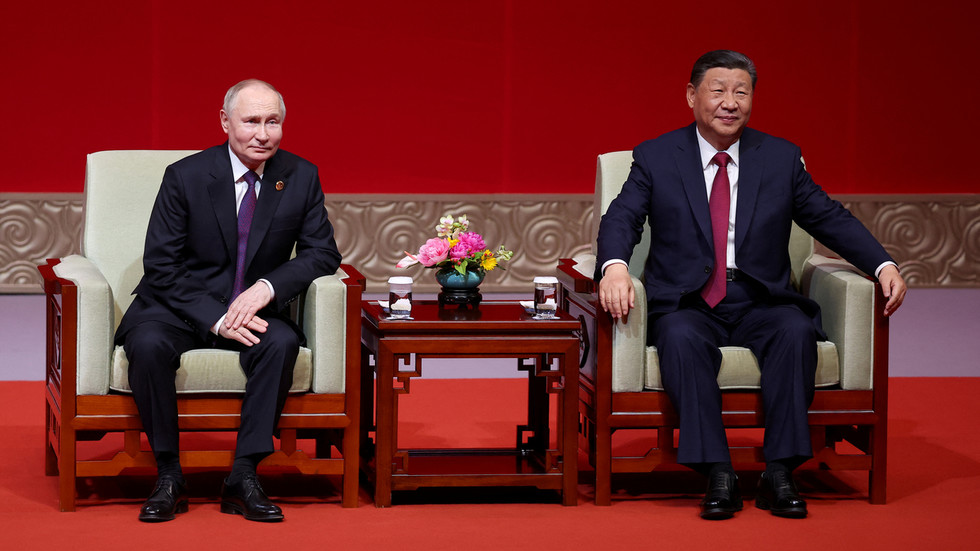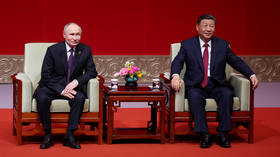
Moscow and Beijing have also said they expect to further expand cross-cultural ties

Russia’s President Vladimir Putin and China’s President Xi Jinping. © Alexander RYUMIN/AFP
Russia and China have pledged to deepen cultural ties between the two nations and to fight ‘cancel culture’ following Thursday’s meeting between Presidents Vladimir Putin and Xi Jinping in Beijing.
It marks Putin’s first state visit since he took office for the fifth time earlier this month. The Russian leader said that “based on the multipolar realities,” the partnership between Russia and China is “one of the main stabilizing factors on the international stage.”
In a joint statement on Thursday, Moscow and Beijing agreed to “take the acknowledgement of cultural and civilizational diversity” as the basis for “furthering dialogue, cooperation and experience exchange.” The two countries also vowed to “counter the politicization of culture, attempts at ‘cancelling the culture’ of certain countries and peoples.” According to the document, they will oppose any approaches based on “discrimination, xenophobia and cultural dominance.”

Russia and China also pledged to expand cross-cultural ties and amplify the exposure of each nation’s people to the other’s art, museums, and cinema.
Speaking in late February, Russian Foreign Minister Sergey Lavrov said that the “destructive line of Western elites to isolate Russia, including in the global informational and cultural spaces, and the general drive to ‘cancel’ everything even remotely connected to our nation has suffered a complete failure.”
In a statement marking Russia’s assumption of the Commonwealth of Independent States (CIS)’s rotating presidency at the start of the year, the Kremlin named “resisting external destructive influence” on member states as one of its priorities. Moscow cited in particular “attempts to cancel the culture” of a particular people, or its contribution to global heritage, as an example of such malign influence.




